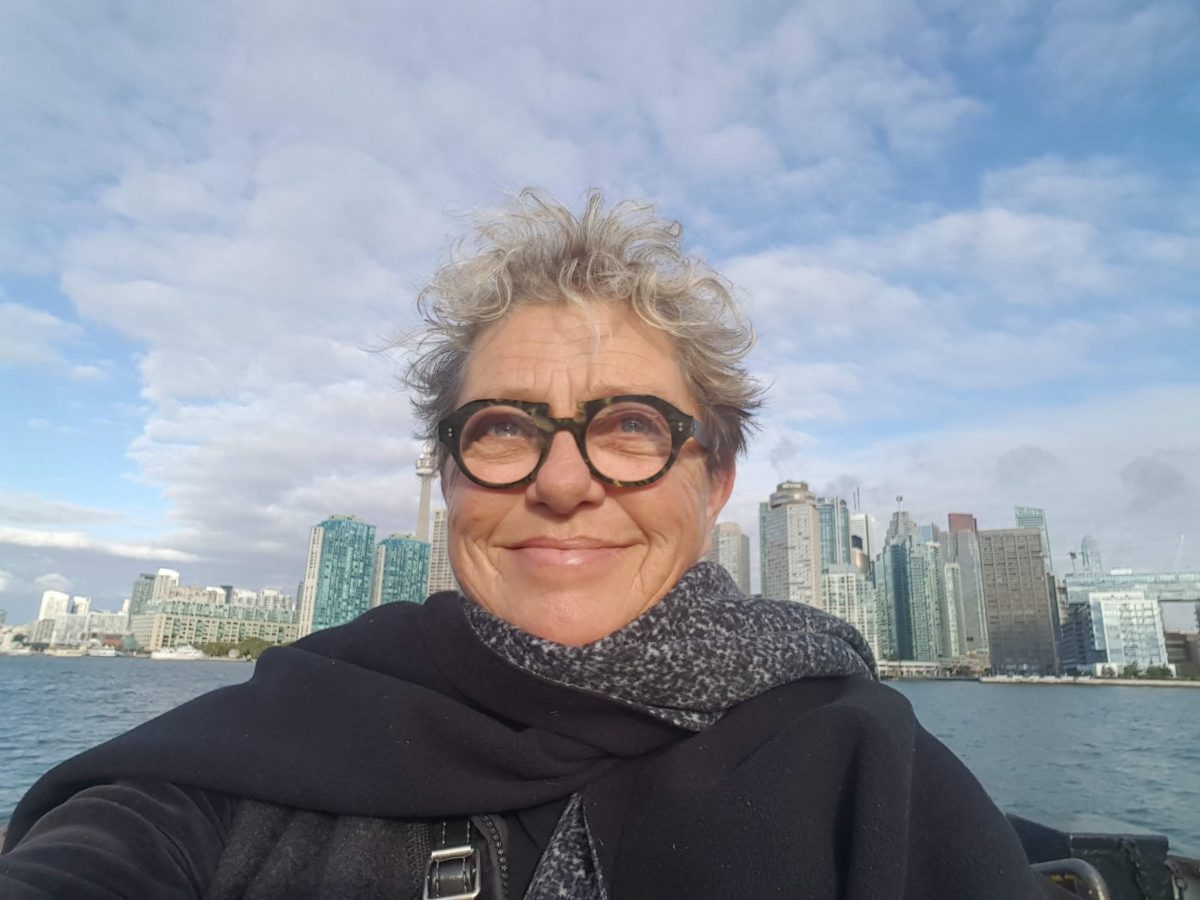Eva Mackey has come a long way since dropping out of high school in Grade 9 — and she thanks the City of Toronto Women and Gender Studies Scholarship for a large part of that success.
After arriving at U of T as a mature student, Mackey earned her honours bachelor of arts degree in anthropology, women’s studies and Spanish in 1990 as a member of New College. She was awarded the scholarship in her final year, which helped her further develop her passion to study gender, intersectionality, and global and local politics. For the past 30 years, that passion has taken her around the world, helped drive her career in academia and continues to burn brightly today.
“These awards are extremely important because they help people like me gain confidence and take risks to generate their own research on gender issues and politics,” says Mackey, now a professor in the School of Indigenous and Canadian Studies at Carleton University. “In this way, I began to develop the skills to do research and undertake activism to understand and improve the world. The scholarship helped me launch a life’s work exploring the complexities of how to do so.”
Specifically, the scholarship enabled Mackey to explore women’s organizations and gender politics post-liberation in Zimbabwe. That work led to a Commonwealth Scholarship that brought Mackey to England (Sussex) for a master’s degree and doctor of philosophy in social anthropology on issues that developed from her work in Zimbabwe. Working with feminists from around the world, she began to develop her research, writing and teaching that continues today, first as an assistant professor in the Department of Anthropology at McMaster University and currently at Carleton.
As a postdoctoral fellow at the Centre for Cultural Risk Research at Charles Sturt University in Australia, she examined race relations, specifically the right-wing anti-Indigenous and anti-immigrant sentiment represented by the rise of Pauline Hanson, founder and leader of the right-wing populist One Nation.
“That work developed and expanded my concern with how societies similar to Canada deal with difference, prejudice and inequality — all concerns that emerged from my feminist training and research,” she says. “My focus is on how majority populations maintain and defend their privileges.”
She returned to that side of the world — New Zealand — in 2011 with the support of an International Council for Canadian Studies International Research Linkages Grant. Working with Avril Bell at New Zealand’s Massey University, she organized an international research workshop Living Together Differently: Indigene-Settler-Migrant Relations in Canada and Aotearoa New Zealand. She also gave virtual talks to New Zealand universities as a Distinguished Visiting Scholar at Massey University New Zealand.”
She says the core learnings gained from her scholarship concerning gender, race, colonialism and history continue to inform her work, including her two books, 2016’s Unsettled Expectations: Uncertainty, Land and Settler Decolonization and 2002’s The House of Difference: Cultural Politics and National Identity in Canada. The House of Difference is found in university syllabuses and libraries around the world.
“The scholarship helped me develop fundamental knowledge and skills about the world, about research, and about the importance of doing fieldwork, which means talking to people and really listening to try to understand the often-silenced stories and histories of women and others often ignored in mainstream versions of history and politics.”
This profile is part of our celebration of the 35th anniversary of the City of Toronto Women and Gender Studies Scholarship. Read about other recipients here.

